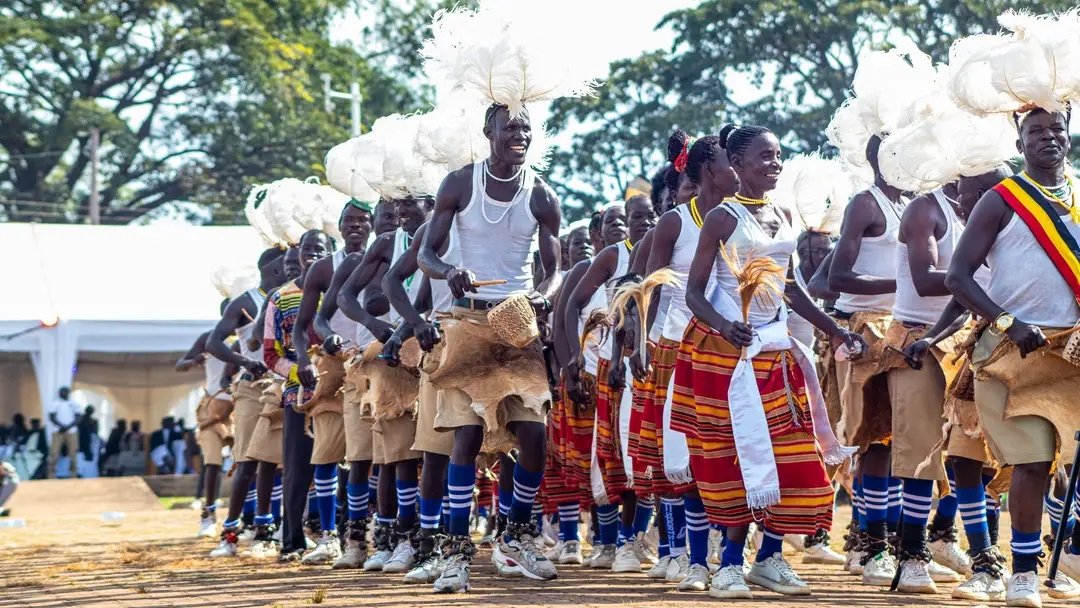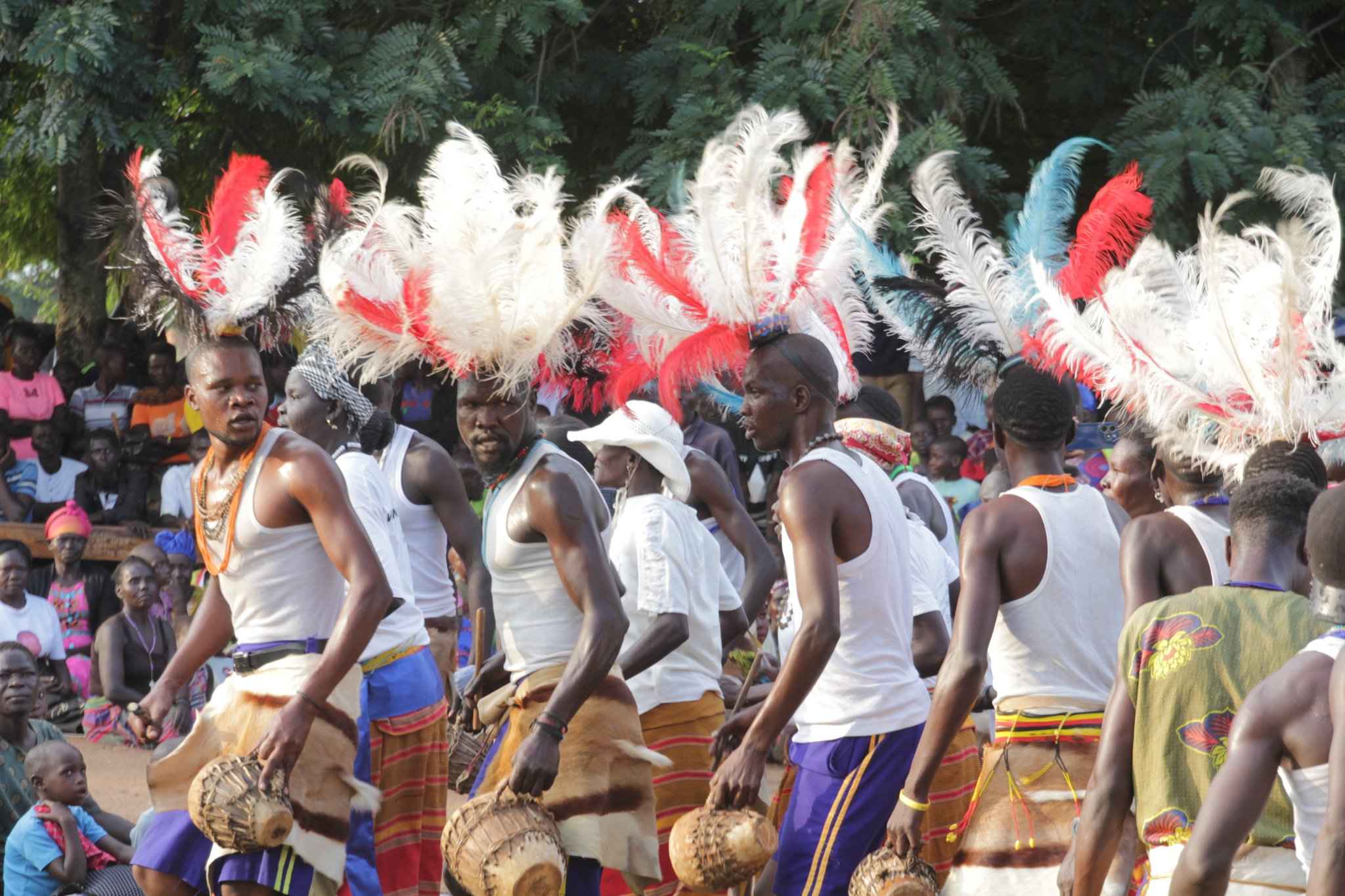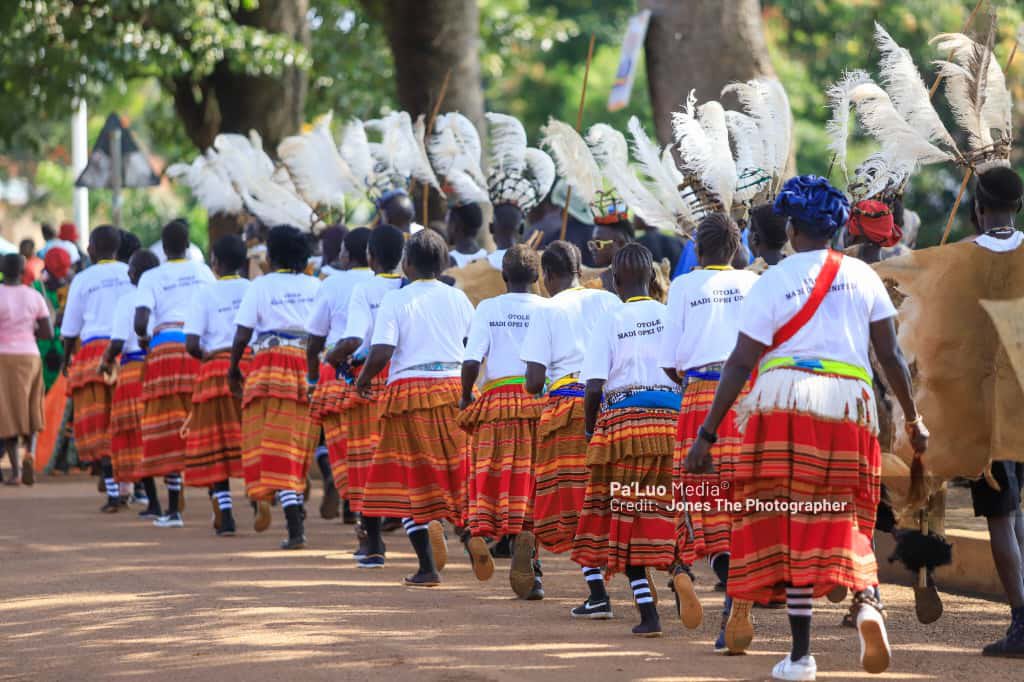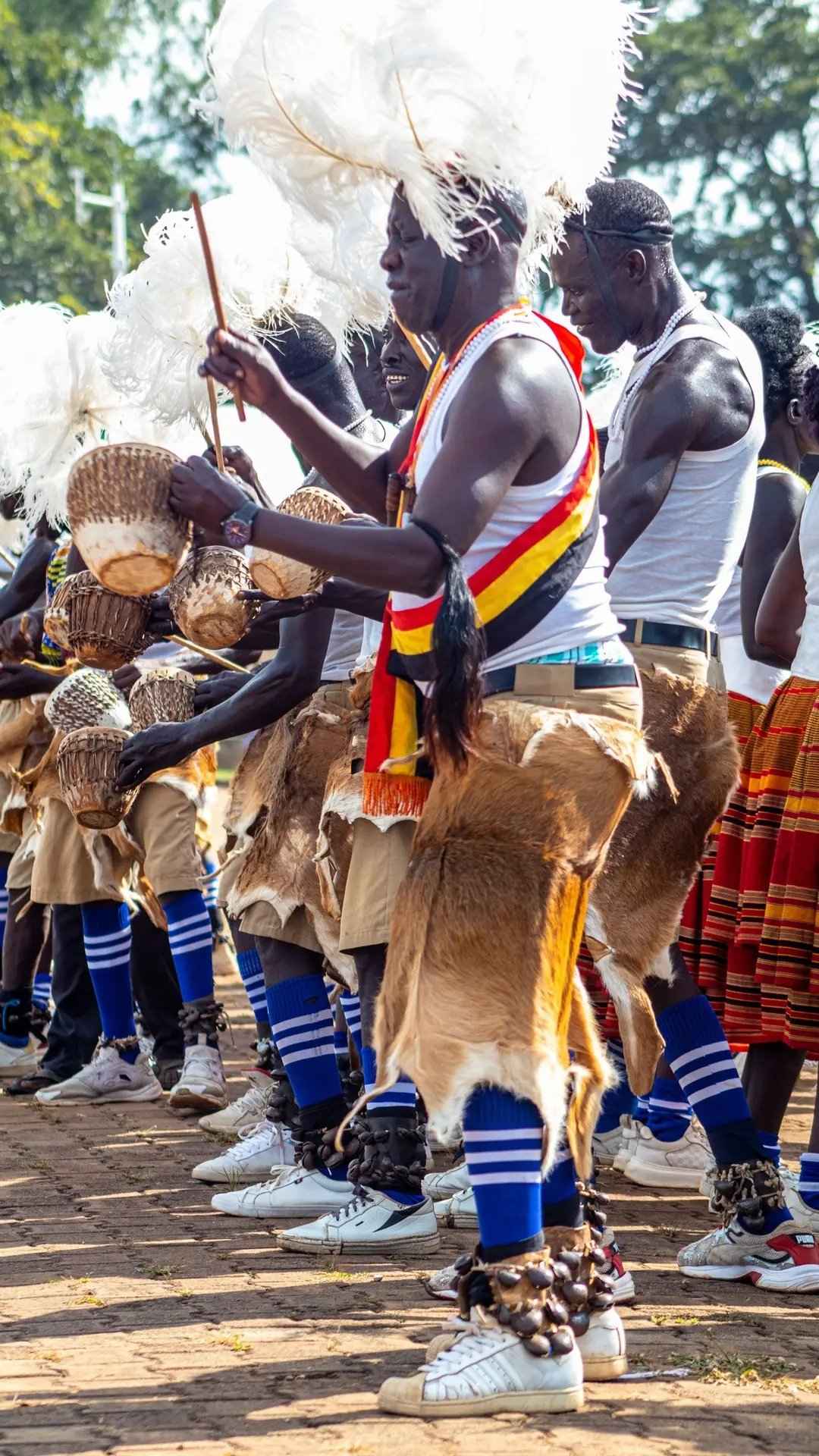
BWOLA DANCE - ACHOLI ROYAL DANCE - A DANCE OF HEART AND HERITAGE
BWOLA DANCE - ACHOLI ROYAL DANCE with grime safaris
Bwola Dance is more than just a dance; it is a heartfelt expression of pride, identity, and cultural heritage among the Acholi people of Northern Uganda and South Sudan. It embodies the true soul of the Acholi people—a celebration of strength, artistry, and tradition.
This dance is a testament to mastery, performed only by those with well-honed talents, showcasing a blend of agility, technique, and regal dignity in Acholiland.

Who performs Bwola Dance?
Not everyone can participate; Bwola is reserved for those who have earned their place through skill and dedication. Bwola Dance also known as the Royal Dance is the dance of choice for Acholi royalty, reserved for special occasions and palace events, where it commands reverence and admiration. Although during Acholi Cultural Tours or Acholi Dances Experience or Wang Oo Experience we Grime Safaris, visitors will have an opportunity to participate, experience the Bwola Dance.
Vibrant and lively, Bwola Dance exudes cultural freshness and entertainment. Historically, it was the highlight of ceremonies for Acholi traditional chiefs on their accession day and remains a treasured part of Acholi ceremonial life.
Dancers always warrior-like traditional attire, complete with feathers atop their heads—symbols of royalty and strength. These feathers carry no trivial meaning but represent the deep cultural heritage of the Acholi people.

As the rhythmic sounds of Acholi traditional instruments fill the air, dancers leap, jump, and wobble with precision and grace—like a well-rehearsed troupe. They form organized lines, leaning into the music, moving in harmony with the beats. Their energetic movements are complemented by expressive faces, radiating joy and pride. Bwola dance is a delicate balance between enjoyment and restraint—an enticing display of strength, radiance, and cultural pride. Every move embodies the spirit of the Acholi—resilient, fierce, and fearless.
Bwola stands as a cultural monument—a powerful symbol of Acholi identity. It reflects the warrior spirit, showcasing Africa’s fearless nature and readiness to confront any challenge. Though it may seem unconventional to outsiders, it is a deeply meaningful dance that narrates stories of confrontation and resilience through movement and symbolism.
The captivating routine of Bwola Dance appeals to both Acholi and outsiders alike. Bwola Dance is performed at weddings, celebrations, and gatherings, captivating audiences with leaps, wiggles, and intricate moves that surpass modern dance forms in authenticity and flair. Bwola dance is more than entertainment; it is a cultural bond that unites communities, strengthens marriages, and delights guests.
Bwola stands as a cultural monument—a powerful symbol of Acholi identity. It reflects the warrior spirit, showcasing Africa’s fearless nature and readiness to confront any challenge. Though it may seem unconventional to outsiders, it is a deeply meaningful dance that narrates stories of confrontation and resilience through movement and symbolism.
The captivating routine of Bwola Dance appeals to both Acholi and outsiders alike. Bwola Dance is performed at weddings, celebrations, and gatherings, captivating audiences with leaps, wiggles, and intricate moves that surpass modern dance forms in authenticity and flair. Bwola dance is more than entertainment; it is a cultural bond that unites communities, strengthens marriages, and delights guests.

When is Bwola Dance Performed | Grime Safaris Uganda
Traditonally, Bwola Dance is performed for the royal mainly at “Gang Ker” in the Place of the chief also known as the “Rwot”. Bwola is also performed when welcoming the Rwot during an event or any public gathering in Acholiland.
Bwola is reserved for notable and meaningful events, and its presentation has adapted over time.
Royal Ceremonies: Historically, it was performed during the installation of a new chief or at other significant royal gatherings.
Honoring Dignitaries: The dance is used to honor and welcome important figures, including political leaders, religious figures, and distinguished guests.
Rites of Passage: Nowadays, Bwola is often featured at weddings, funerals of prominent individuals, and other major celebrations.
Cultural Exhibitions: It is frequently showcased at festivals, cultural events, and school programs to highlight Acholi heritage and traditions.
Where can I hire Acholi Traditional Dancers?
You can hire Acholi Traditional Dancers from Grime Safaris an Eco Travel and Cultural Conservation Company based in Gulu.
Grime Safaris has Acholi Traditional Dancers through out Northern Uganda, in case you need Acholi Traditional Dancers to grace your event reach out today.
Call: +256 7743 68857

Facts and Insights About Bwola Dance in Acholi Villages
Formation and Movement: The dance is performed in a circular formation, with men and women dancing in separate groups. Men typically move clockwise, while women move anti-clockwise, creating a dynamic visual spectacle.
Choreography and Rhythm: The dance features precise rhythmic footwork, with dancers often maintaining a relatively still upper body. Movements may include leaps and vigorous steps, emphasizing energy and agility.
Traditional Costumes: Dancer’s wear elaborate, culturally significant attire.
Men: Usually don ostrich feather headdresses, animal skins wrapped around their waists and backs, and ankle bells that accentuate their movements.
Women: Wear pleated fabrics also known as kikoyo made to form marina and beaded accessories around the waist, often exposing the midriff or pairing with crop tops or bras.
Musical Accompaniment: The dance is set to the vibrant sounds of traditional instruments.
Drums: Large drums like the min bul, along with smaller drums, are played to keep the rhythm.
This dance remains a powerful expression of Acholi identity, resilience, and cultural pride, even as it adapts to contemporary challenges.
To experience deep insight about Bwola Dance, Acholi Traditional Dances, Acholi Culture and Tradition, book for Acholi Tours with Grime Safaris
Call or Whatsapp: +256 7743 68857
Email: grimesafaris@gmail.com
Website: www.grimesafaris.com
